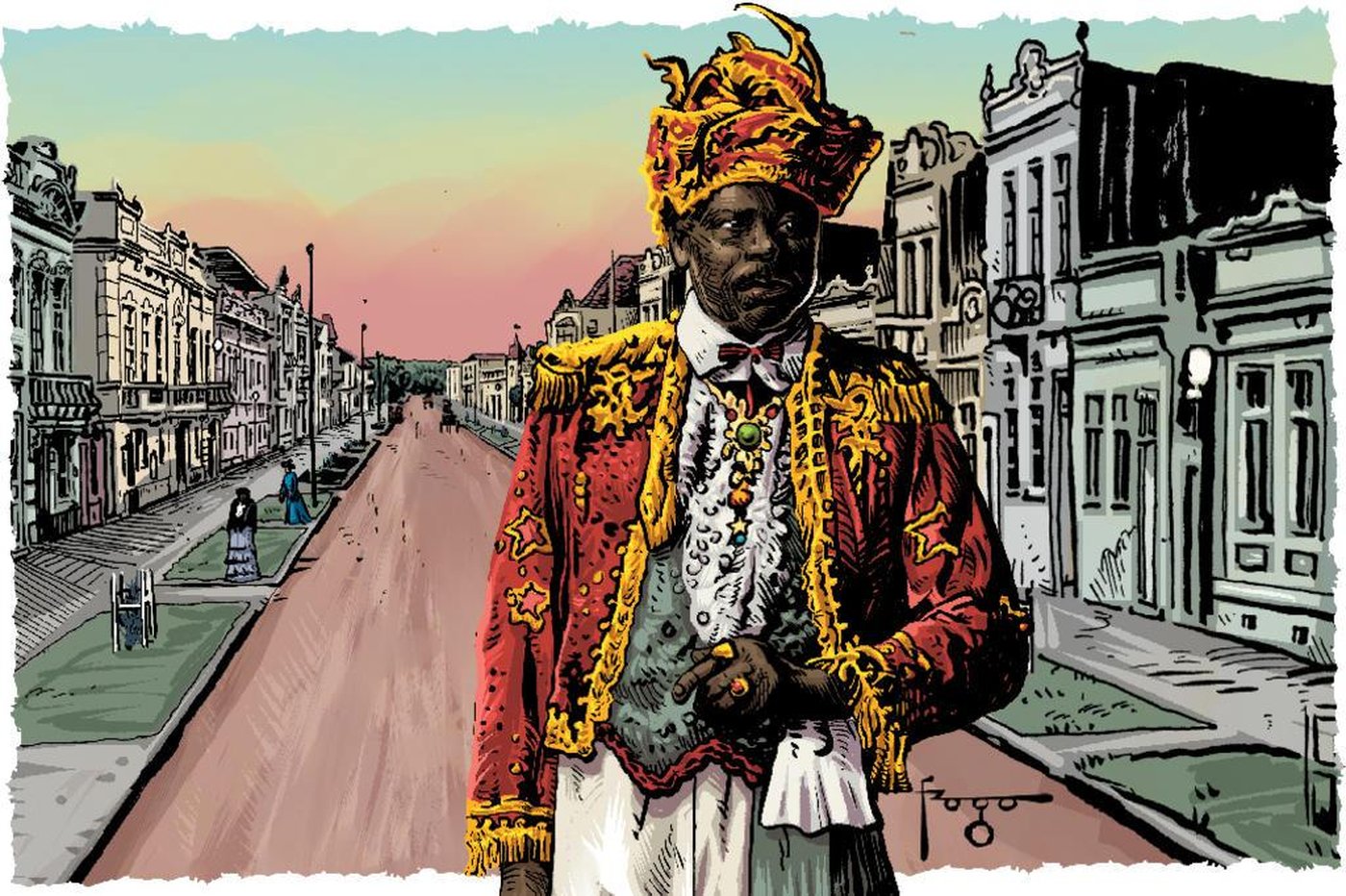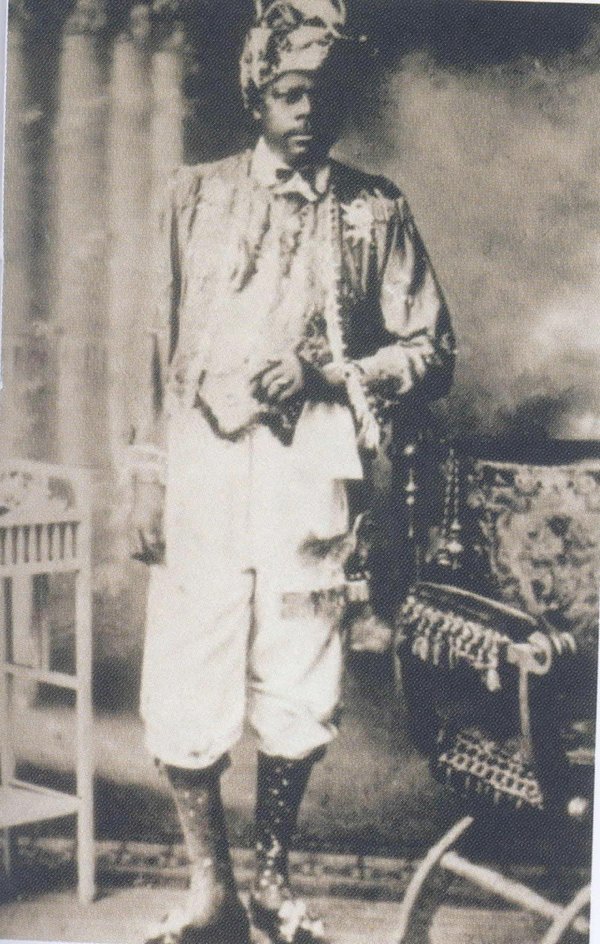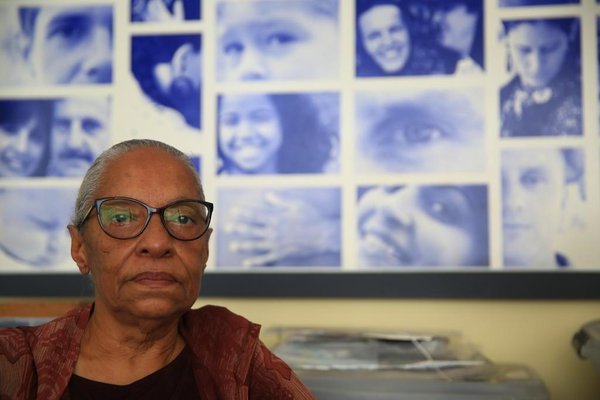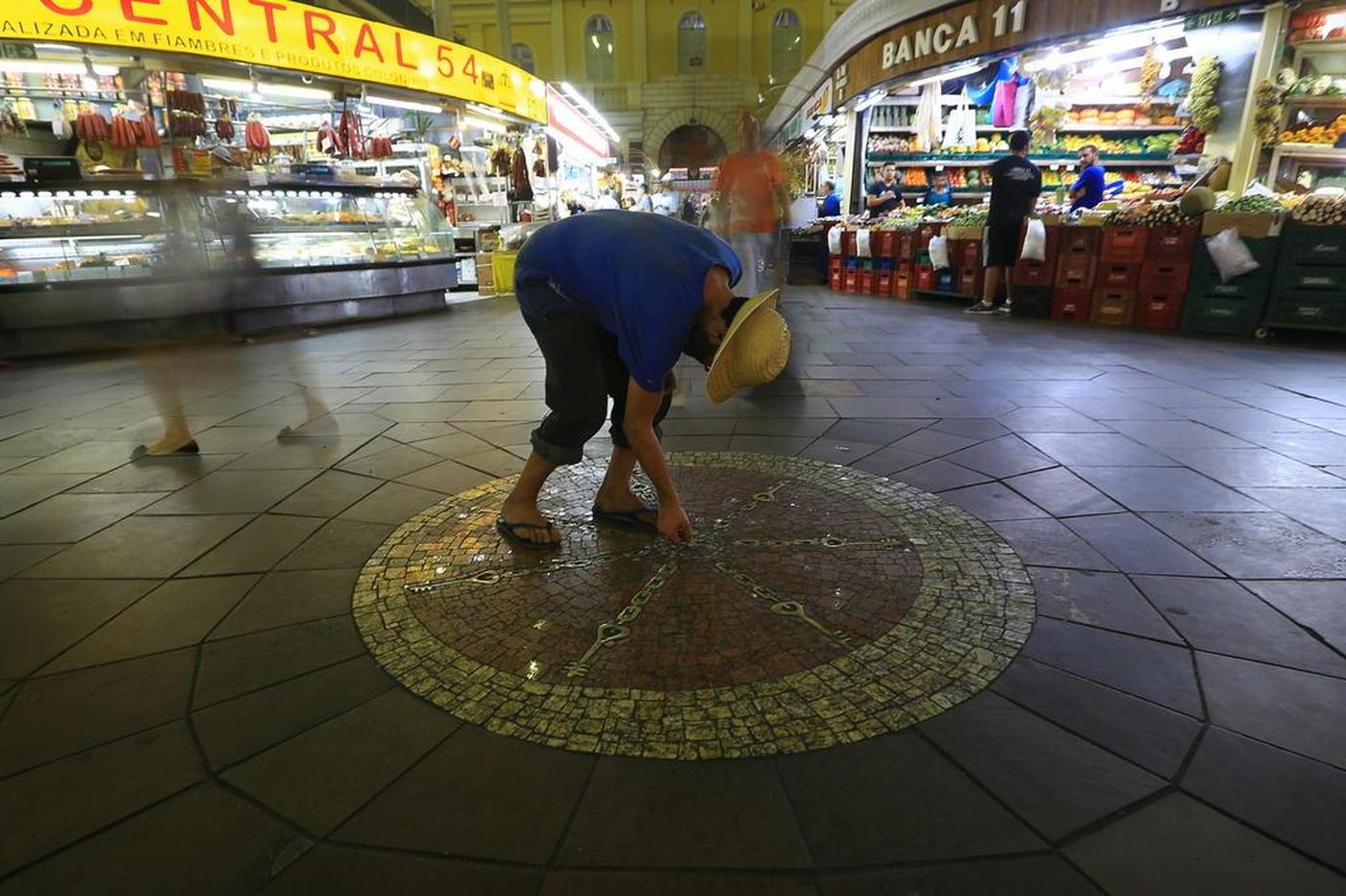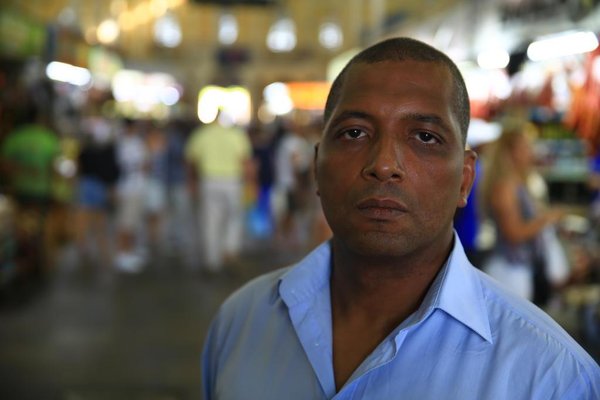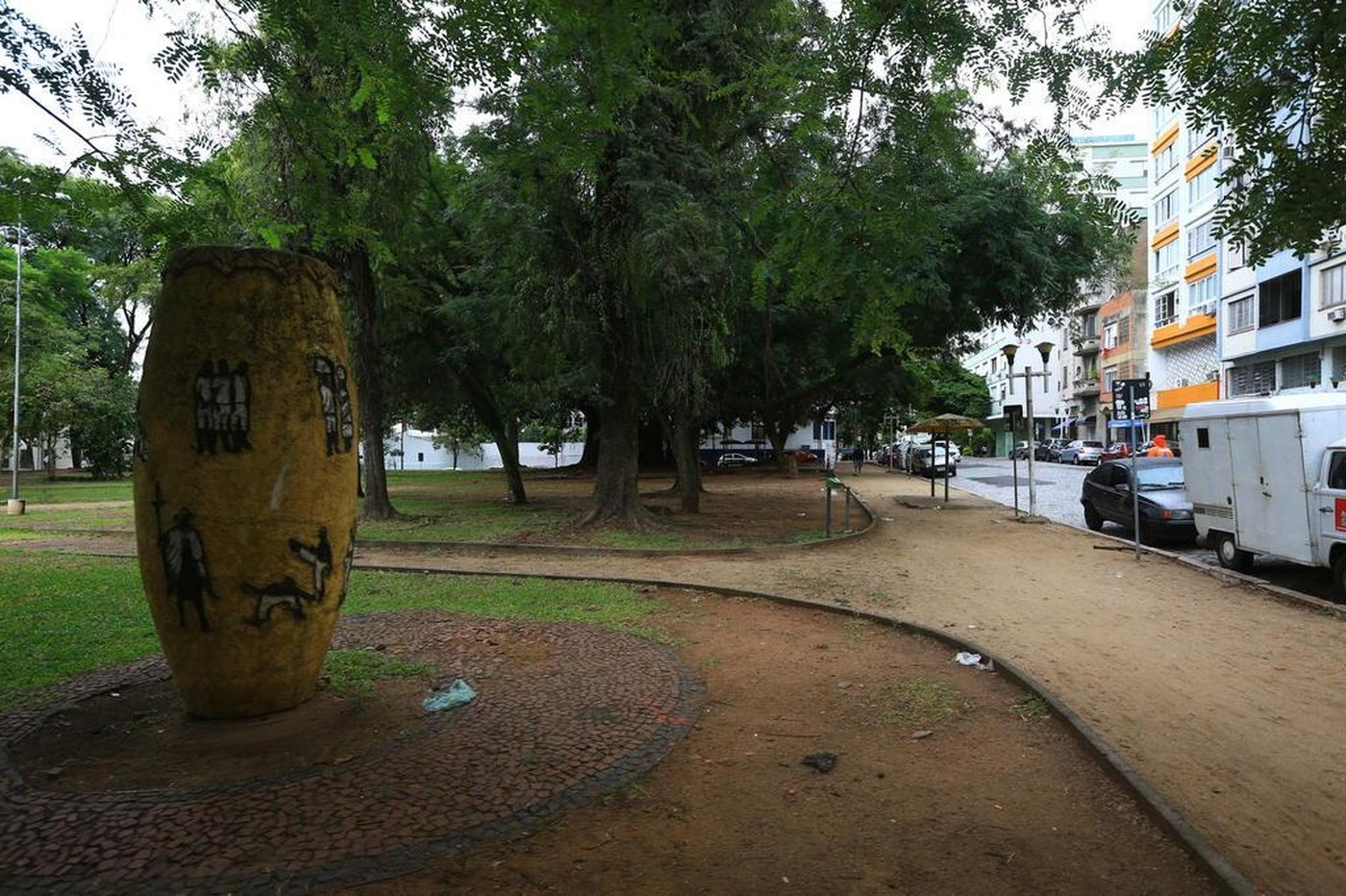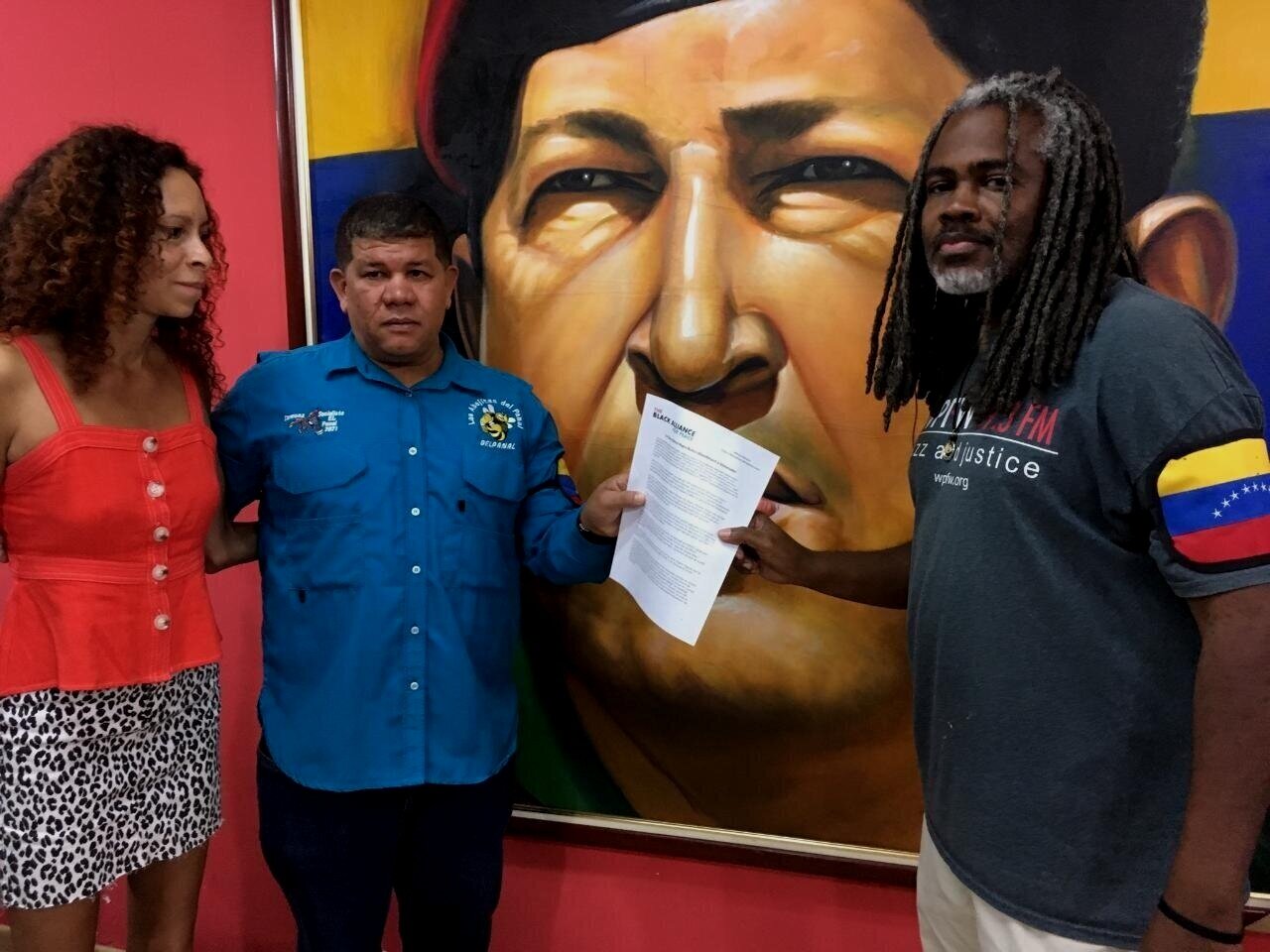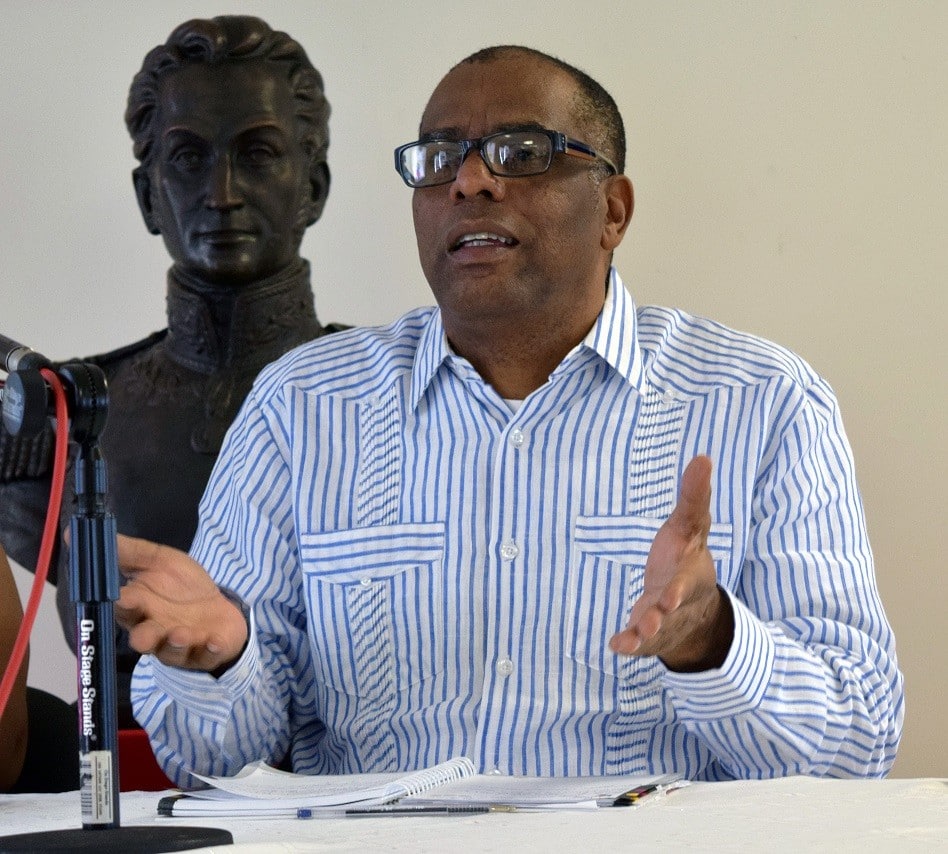Do you also use the judicial route as a tool to fight?
Yes, we have won two cases... seeing that there was no type of justice application in Honduras, we had to go to the inter-American system. In 2015, there were two convictions against the State by the communities of Punta Piedra and Triunfo de la Cruz. The Inter-American Court of Human Rights (IACHR) determined that the State of Honduras had violated the right to free informed consultation and the right of possession of the ancestral territories of the Garifuna community. And we are at this moment with what I mentioned before, if there is no institutionality, in a State like Honduras, despite the fact that there are sentences, there is no political will, nor conditions for it to comply with those sentences. In May of this year, the IACHR made a report to monitor compliance with the sentence, precisely where it ordered the State to resume and comply with the sentence because the time it gave it had already run out — two and a half years.
We are still insisting and fighting for the State to comply with the sentence because they are mandatory! In other words, if the country is a signatory to the IACHR, it must comply with that sentence. But of course, a country like Honduras which has been kicked around today... whose president and government have dedicated themselves more to legitimizing themselves internationally than to serving the sentences that have to do with this case. We are the only Afro-indigenous organization that has brought cases to the IACHR and that we have won. We have also dabbled in bringing lawsuits before the World Bank's inspection panel and at the time they also proved us right. We have also submitted alternative reports to international mechanisms in Europe such as the Committee for the Eradication of Racism.
So, as an organization we do local work at the same time that we turn to international mechanisms that have to do with the validity, recognition and respect of the human rights of indigenous peoples and the population in general. We are also making our gained experience available to other indigenous peoples, whose organizations are requesting us. We are very proud that we take the cases directly as an organization without any umbrella; we have been gaining experience and that has given us strength and also the power to know all the international instruments. I think it is important for organizations to empower ourselves with these mechanisms, understanding that they are not the last hope of resolving a conflict. The inter-American system is a system set up by the governments themselves, but it has enabled us to make the problems and situation of the Garifuna people visible internationally.
Can you tell us what is Vallecito?
Vallecito was a territory taken by drug traffickers where they installed a clandestine runway on which drug planes landed. In 2011 the runway was dynamited. 90% of that territory was in the hands of a single trafficker who has already died, 1,200 hectares of land titled in favor of the Garifuna people. It is a beautiful valley, one of the most beautiful things that can be... in 2012 we decided to recover it. OFRANEH decided to recover it as a right that assists us as a Garifuna community. It is an incredible thing because we went with our drums, with our culture, identity and over there on the other side we listened to the shootings, the shots from the drug traffickers. We were resisting and persisting. In 2014, I and several companions were kidnapped by assassins who attempted to murder us. It is a very attractive area because it is strategic for organized crime, it has a beach, it has a lagoon and it is a very mountainous area. When we were kidnapped on July 14, 2014, I don't forget the date, there was a lot of national and international solidarity, and the presence — I remember well — of Berta Cáceres, who arrived quickly. We said we are not going to leave, and today it is a territory in which we are exercising food sovereignty. At the Central American level it will be the territory with the highest production of oil palm, with more than 150 palms planted for next year. And also, there we are going to create the next Indigenous University at the disposal of the Garifuna people and all indigenous peoples. We are permanently resisting there.
OFRANEH is also a container of many diversities. It's like a continent in itself, right?
The peoples are wise, we have is wisdom. In the assembly, and by decision of the Garifuna people themselves, they said we must work all the internal diversity of the Garifuna people and we cannot leave anyone behind. In other words, if we talk about women, youth, boys and girls, we also have to talk about gender diversity. We have been doing a very nice job, and I love it because I have had to be with the boys and the girls, and we have talked with much respect.
We started with workshops not only of self-recognition, although there are also many elements that have been introduced into the minds of the Garifuna that did not exist before. I say this very properly because in the Garifuna world people who are sexually diverse have always been respected, but intolerance is something that has been brought by the church, religions, education, and the media. Before that, people lived with someone who was gay, lesbian, and it was not a scandalous thing, but when religion comes in, judgement begins, then the mentality changes and intolerance comes. This is important to understand because the peoples have lived very harmoniously and very tolerant of diversity in our communities.
It was not only the issue of self-recognition but, like them, we were talking about the relationship between family and the LGTBI community. We worked there; it is not easy because they are young people, many of them have had to migrate to the cities, they do not live in their communities. That changes everything a lot, but today we have a wonderful group of young people who are betting on it. They give me strength because they call me to say “we have to get together”, and they say that this is a central issue as well as the land issue and the issue of food production. The nice thing is that they, too, have gone to Vallecito, we have made workshops with them there and they have joined the food sovereignty work, they have participated in the mobilizations... because we are an organization of movements, of action, accompaniment and permanent solidarity. The LGTBI movement is involved in all the activities of the OFRANEH not only in the area that corresponds to them, I believe that it is part of the growth, to not only focus on the discrimination they may feel for their reality.
Based on everything you said, does OFRANEH put ecofeminism into practice?
We have to make the fight comprehensive, that is, we cannot go alone with the issue of the right of women to decide on our bodies and detach ourselves from that other reality that many women live in, which is that they do not have time to think about their bodies, but instead are holding economies, are holding wisdom and knowledge. You just have to see that women are the guardians of the seeds. There is a need for feminism — for me, feminism is not only different women's movements — to work the law on our bodies, but also the law on the territories, resources and common goods of nature because we are not separate from that. Women not only give life but we have given much knowledge and wisdom throughout world history.
Today we have this privilege in Honduras which is the process we have started of working with women. OFRANEH was the promoter of a meeting of women in Vallecito, thinking that in this scenario we women had to give the word and act. On the date of the commemoration of the ten years of the coup, we held a meeting in which more than 1,500 women from 16 departments of the country arrived, with more than 400 boys and girls, and in a very difficult space because it is mountainous, but we created the conditions to do that event. Some time before we had been asking for water for the coconuts praying to our ancestors, the land, the sea, the air... and it rained on us that day! But it was beautiful.
There were female workers, peasants, feminists, women from the capital, from all sides... to reach that space, go to the sea for a while, connect with nature. There is no electric power, so people immediately connected with nature, listening to birds, trees and breathing fresh air. It is from there that the Assembly of Women Fighters of Honduras arised, which is a space for articulation that we have today, in which we are gathering as women. It is not a pyramid or structural organization, we want a women's space so that we all have a voice and listen to each other.
If we realize that a comrade is in danger, or we have to go visit other comrades — because we also accompany other movements — such as the case in Guapinol recently, women who have suffered a lot because they took their companions prisoner; many times there is talk of political prisoners, but no one talks about their wives and companions who have been bearing all that burden, and we are there. I have a lot of faith in that space. There we have feminist, lesbian, transgender colleagues of all diversities, but I think that one of the most important issues tolerance, respect, that we have to work so hard in all the spaces we are in. It does not matter that the comrade is a peasant, but her voice being heard is very important because they have a lot of accumulated knowledge, as well as that of feminist and professional women who have a long way to go. In this space, everyone respects this peasant comrade who is a woman who is also betting on the rights of her community. We are building a very beautiful thing.
And what can you tell us about the Community Radio Network?
We were the first in Honduras to create community radios and one of them, the one in Triunfo de la Cruz, was promoted by the same community. Later we were accompanying them precisely because of the pressure of the State on them. For example, the Coco Dulce community radio, Faluma Bimetu in Garifuna, was burned and destroyed just after the coup d'état in December 2009, but with much solidarity and support it was restored in 2010.
Our network comprises seven radios that are always besieged by the State because they say that we do not have a license to use the radio spectrum, people already know the story of how they face communities and organizations for installing and having the right to our own media. I have several lawsuits from the State against me. Radio plays an important role not only to publicize the problems of the communities, but also helps the issue of identity and culture. The fact that a radio station speaks and broadcasts the news in Garifuna, or that a woman who has ancestral knowledge comes to speak about her experience when, above all, because we are a community with a lot of oral tradition... radio plays a fundamental role there. So it seems terrible to us that they are criminalized and prosecuted.
We are part of a network in which several radio stations converge at the Mesoamerican level — Mexico, Guatemala, Honduras, Nicaragua, El Salvador — because I believe that together we become stronger and above all because legislation is increasingly used to silence voices. In Honduras laws have been created to regulate as much as they can and destroy all initiatives. Some radios are completely managed by young people, we have also sought that some are managed and run by women, it is a little more difficult, often because of time: women have to have five times more time to attend to things, but it is a issue for which we want to continue betting and strengthening. I also want to say that we are also supporting the creation of radio stations in other indigenous communities that are not only Garifuna. We are supporting the Pech people, and wanting to accompany the Miskito people who have requested us from our experience because we can work with them.
Where should the legacy of Berta Cáceres take us?
Today Berta's word is being studied in many places not only in Honduras, but I always claim that Berta woman, that Berta of resignations, that Berta who also faced so much discrimination and racism, so many attacks, that internationalist woman in every sense of the word. A woman who understood that the issue of alliances and articulations was so fundamental, and the knowledge of what happens internationally, that's why she knew so many countries and many people miss her for that. When they say the words of Berta multiplied, that makes sense and content because in the place where you least imagine there you will find it painted, it is incredible. Then where they listen to the media or there on the deepest mountain, they know who Berta is.
We have to go on fighting so that not only her image is known but also a Berta with content, what were her ideas, why she was fighting and what Berta meant to the Honduran people. I remember it fundamentally because we began the process of making indigenous peoples visible with her. That was wonderful because before then these peoples were stones, for the Honduran imaginary they were something that existed very far back. And when that work began through COPINH, several organizations and people joined us to accompany that process; we said no, indigenous peoples are not a thing of the past, they exist, and here they are. We have been fighting for 500 years for our existence, although very quietly, but we are there, with a different way of seeing life that deserves respect and recognition, and they should let us live as we want to live. That is, for me, one of Berta's greatest contributions, in Honduras, which is almost unknown, but which I always claim.
Miriam Miranda: “Honduras became a political laboratory after the 2009 coup”




